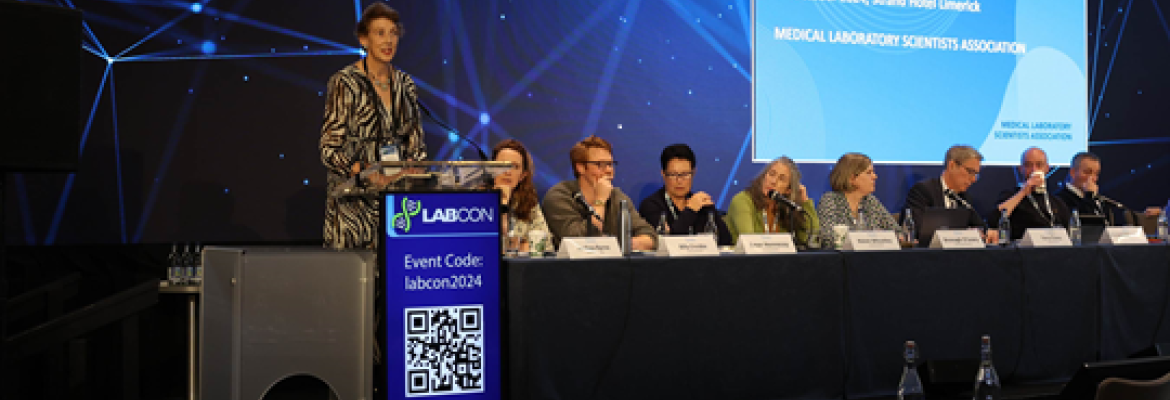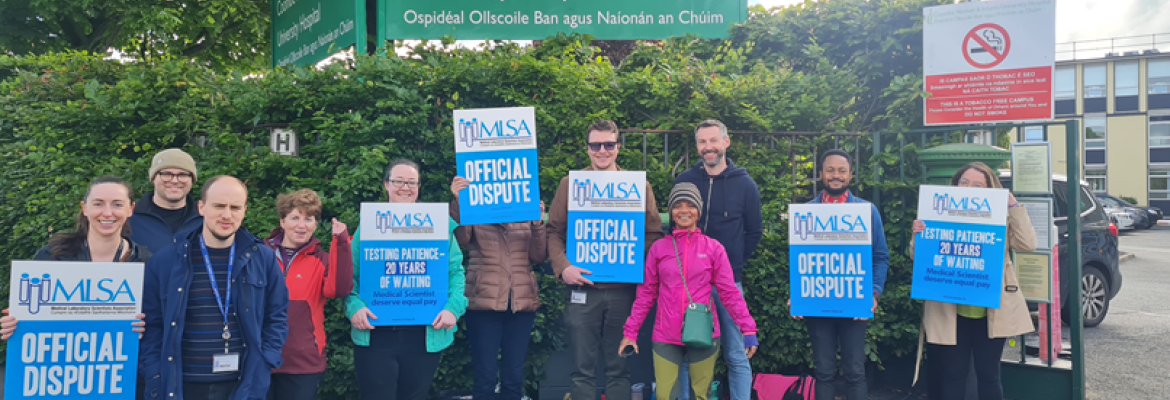A Career in Medical Science
Medical scientists work in healthcare, usually in hospital pathology laboratories, and are involved in the analysis of patient samples in order to detect disease and to monitor the effectiveness of any treatment prescribed by clinicians (doctors). It has been estimated that 70% of diagnoses by clinicians are made as a result of tests carried out by laboratory services.
There are well over 2000 Medical Scientists employed in the Republic of Ireland, working in diverse settings such as Public and Private Hospital Laboratories, Public Health Laboratories, Private Pathology Laboratories, the Irish Blood Transfusion Service and national reference laboratories such as the National Virus Reference Laboratory in UCD. Employment in the pharmaceutical industry and veterinary laboratories is also possible.
Medical Laboratory Science a is continually changing and dynamic profession and offers a fantastic variety of exciting career opportunities including specialised laboratory work, research and development, continuing career education, and laboratory management. The work is a fast-changing, dynamic complex science requiring accuracy, teamwork, efficiency and meticulous attention to detail.
Specialist areas in Medical Science:
Medical laboratory science is divided into what are known as specialist disciplines or subjects and the following are examples of the type of work undertaken on a daily basis:
Medical Microbiology: This is the study of micro-organisms such as bacteria, fungi and parasites which cause diseases including meningitis, tuberculosis and food poisoning.
Clinical Chemistry: Blood and other biological materials are analysed to assist in the diagnosis of disorders such as diabetes, raised cholesterol and abnormalities in kidney and liver function. It also looks at diseases of the endocrine glands such as the thyroid or pancreas.
Transfusion Science: This discipline identifies blood groups for donations and ensures that the correct blood group is matched to the patient who is to receive the transfusion.
Many treatments such surgical procedures or cancer therapy also require the use of blood or blood products to ensure best outcomes for the patient.
Haematology: Haematology is the study of blood cells and the ability of blood to clot correctly. It looks at the development, function and diseases of blood such as anaemia, leukaemia and also checks Warfarin therapy.
Cellular Pathology (Histopathology): In Histology, tissue specimens are examined under the microscope in order to establish the cause of illness or disease. Specimens may be collected during surgery or at post-mortem. Cancers are often diagnosed by looking for abnormal features in tissue cells.
Virology: Is the study of viruses and the disease caused by them such as German measles, mumps or chickenpox.
Immunology: Medical scientists working in Immunology deal with disorders of the body’s immune system and its role in infectious diseases, allergies and in testing for good matches in kidney or liver organ transplants.
Molecular Pathology: Some of the newer areas of Medical Science include the study of genetics and searching for the genes responsible for causing illness and diseases. This area is called molecular biology/genetics and is an extremely powerful tool for searching for absent or damaged genetic material.
How do I become a Medical Scientist?
The profession of medical scientist is regulated by CORU, the Health and Social Care Professionals' Council. The Medical Scientist Registration Board opened on 31st March 2019 and registration is mandatory since 31st March 2021. Section 38 applicants (all applicants since 31st March 2021) must be registered with CORU to practice; section 91 applicants, who were practicing in the profession for the required time before 31st March 2021 and applied to CORU before that date, are required to have proof of having applied to register prior to 31st March 2021. Please refer to the CORU website for up to date information on state registration requirements.
Entry into Irish Biomedical Science courses is through the Central Applications Office (CAO). Since March 31st 2019 CORU, the Health and Social Care Professionals' Council is the authority that accredits courses for eligibility to practice as a medical scientist. Full details of the three Irish centres that offer ACSLM-accredited 4 year honours degree courses with vocational training, in Dublin (TUD, formally DIT), Cork (CIT/UCC) and Galway (GMIT), can be found on the CAO website at www.cao.ie
A good Leaving Certificate is required and the entry points can be high. One or more science subject are usually required for entry into Biomedical Sciences Degree courses.
Further information on a career as a medical scientist can be found on the website of the Academy of Clinical Science and Laboratory Medicine (ACSLM), the professional and academic body for medical scientists .





